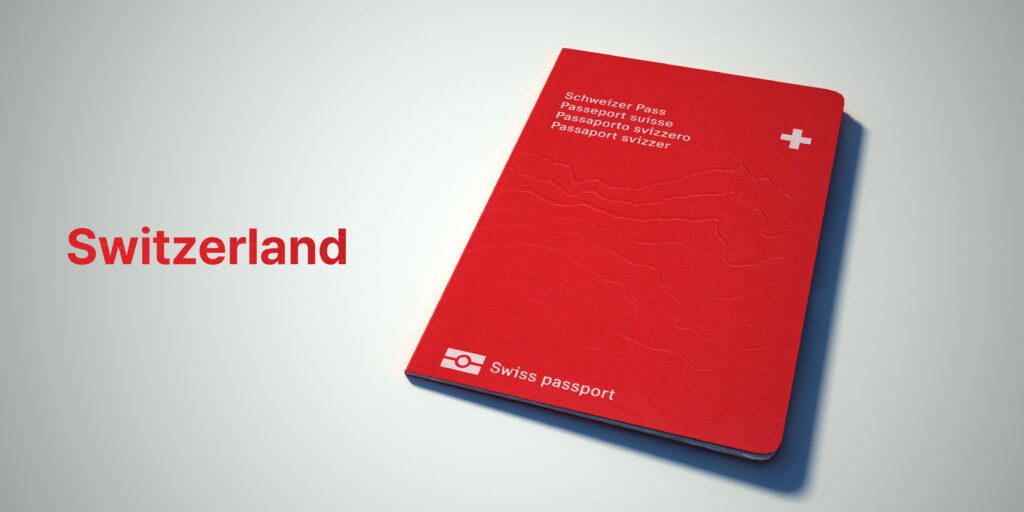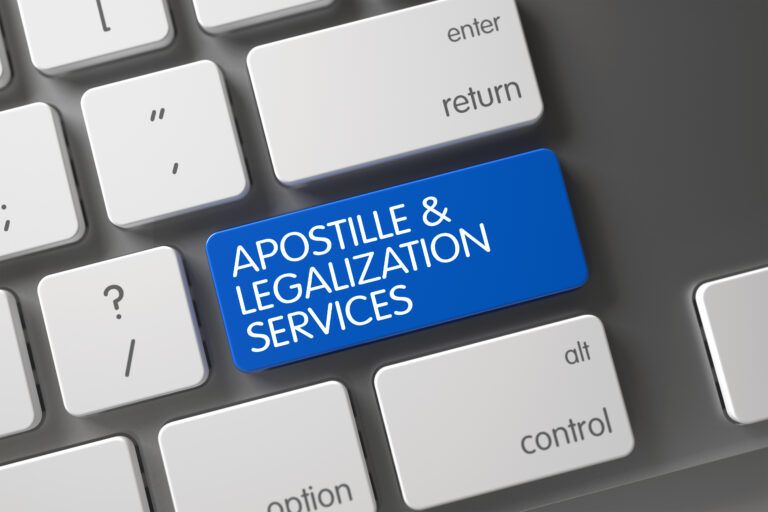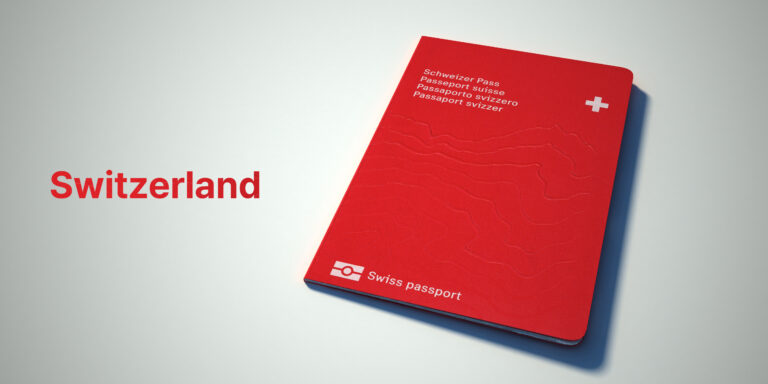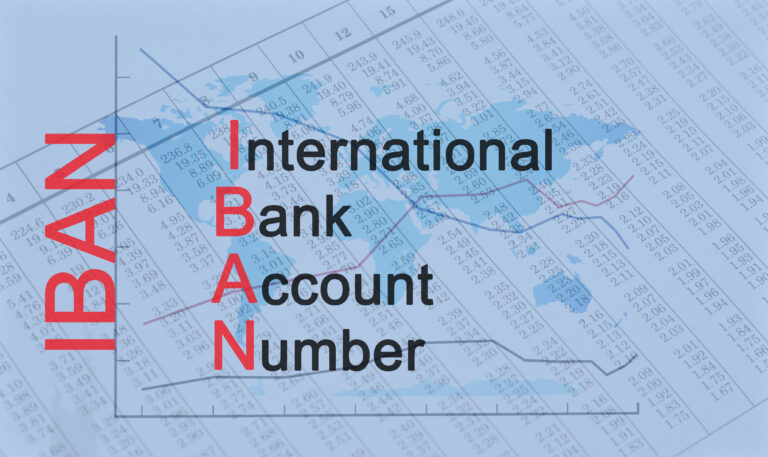The Swiss Passport
The Swiss passport is an official document issued to citizens of the Confederation, enabling them to travel abroad and prove their nationality. Since October 31, 2022, a modernized version of the Swiss passport has been available, featuring a renewed design that reflects the landscapes of the 26 cantons while incorporating cutting-edge security elements.
Main characteristics of the Swiss passport:
- Revised design:
The new Swiss passport retains its iconic red cover while featuring illustrations of Swiss mountains and waterways. A special page is dedicated to Swiss citizens living abroad, often referred to as the “Fifth Switzerland.” - Secure biometric data:
This document integrates an electronic chip containing biometric information, such as a digital photo and the holder’s fingerprints, complying with international security standards. - Validity period:
The Swiss passport is valid for 10 years for adults and 5 years for citizens under 18 years old.
Swiss passport application process:
Swiss citizens can apply for a Swiss passport online, by phone, or directly at their regional cantonal passport office. For those living abroad, the application can be submitted at the Swiss embassy or consulate in the relevant country.
Cost of the Swiss passport:
The fees for obtaining a Swiss passport are as follows:
- Adults: CHF 145 for the passport alone, and CHF 158 if combined with an identity card.
• Minors (under 18): CHF 65 for the passport alone or CHF 78 with the identity card.
• Emergency passport: Available for CHF 100, with an additional surcharge of CHF 50 if issued by the federal police at an airport.
Traveling with a Swiss passport:
The Swiss passport provides significant travel freedom, allowing visa-free or visa-on-arrival access to approximately 190 countries and territories. Thanks to bilateral agreements between Switzerland and the European Union, Swiss passport holders enjoy free movement to settle and work in EU and EFTA (European Free Trade Association) countries.
For more information, it is recommended to visit the official website of the Federal Office of Police (Fedpol), which provides details on the steps to obtain this valuable document.
Obtaining the Swiss passport
To obtain Swiss nationality and thus be eligible for a Swiss passport, one must follow a naturalization procedure, which can be either ordinary or facilitated, depending on the applicant’s personal situation. Each type of naturalization involves specific conditions and well-defined administrative steps.
RISTER – Fiduciary in Geneva offers specialized services to assist entrepreneurs and their families in preparing their Swiss naturalization applications. With extensive expertise in cantonal and federal requirements, RISTER supports its clients at every stage of the process, ensuring that all necessary conditions, particularly in economic, tax, and social integration, are met. The support includes compiling the required documents, preparing for interviews, and closely following the case with the competent authorities. By collaborating with RISTER, entrepreneurs who have established their business in Switzerland benefit from personalized assistance to facilitate their access to Swiss nationality and the Swiss passport.
Ordinary naturalization
This pathway is for individuals residing in Switzerland for several years without a direct link to a Swiss citizen. The required conditions are as follows:
- Residency duration
Legally residing in Switzerland for at least 10 years, with continuous presence during 3 of the last 5 years before applying.
• Years spent in Switzerland between the ages of 8 and 18 count double, but a minimum of 6 years in total is required. - Residence status
Holding a C permit, guaranteeing a permanent residence authorization. - Integration level
Respecting Swiss society’s rules, with no criminal record or significant debts.
• Possessing a minimum language level (B1 oral, A2 written).
• Having knowledge of Swiss history, culture, and political system.
• Being financially self-sufficient without relying on social assistance.
• Demonstrating attachment to Switzerland and the canton of residence.
The process begins with submitting an application to the municipality or canton, followed by an interview and, in some cases, a naturalization test. Once naturalization is granted, one can obtain the passport in Switzerland, which serves as official recognition of Swiss citizenship.
Facilitated naturalization
This faster procedure is available to certain categories of people, including:
- Spouses of Swiss citizens after 3 years of marriage and 5 years of residence in Switzerland.
• Children of Swiss citizens.
• Third-generation foreigners who grew up in Switzerland.
• Individuals who lost their Swiss nationality and wish to regain it.
The integration requirements are similar to those of ordinary naturalization, but the process is centralized at the federal level through the State Secretariat for Migration (SEM). Once facilitated naturalization is obtained, the applicant can request a Swiss passport, allowing them to travel freely to many countries.
Cost and duration of the procedure
Naturalization fees vary depending on the chosen procedure:
- For facilitated naturalization, the costs are approximately CHF 900 for adults, CHF 650 for minors aged 12 and above, and CHF 250 for younger children.
• Processing times generally range from 1 to 3 years, depending on the checks conducted by cantonal and federal authorities.
Advantages of the Swiss passport
Once naturalization is validated, the new Swiss citizen can apply for a passport, which offers numerous benefits, including:
- Freedom of movement in EU and EFTA countries.
• Visa-free or visa-on-arrival access to over 190 countries worldwide.
• Recognition of Swiss consular protection abroad.
Naturalization is a demanding process, but it grants full Swiss citizenship rights, including the right to obtain a passport and participate fully in the country’s political and social life. For more information on the procedure, it is recommended to contact the relevant cantonal authorities or visit the official website of the State Secretariat for Migration (SEM).












